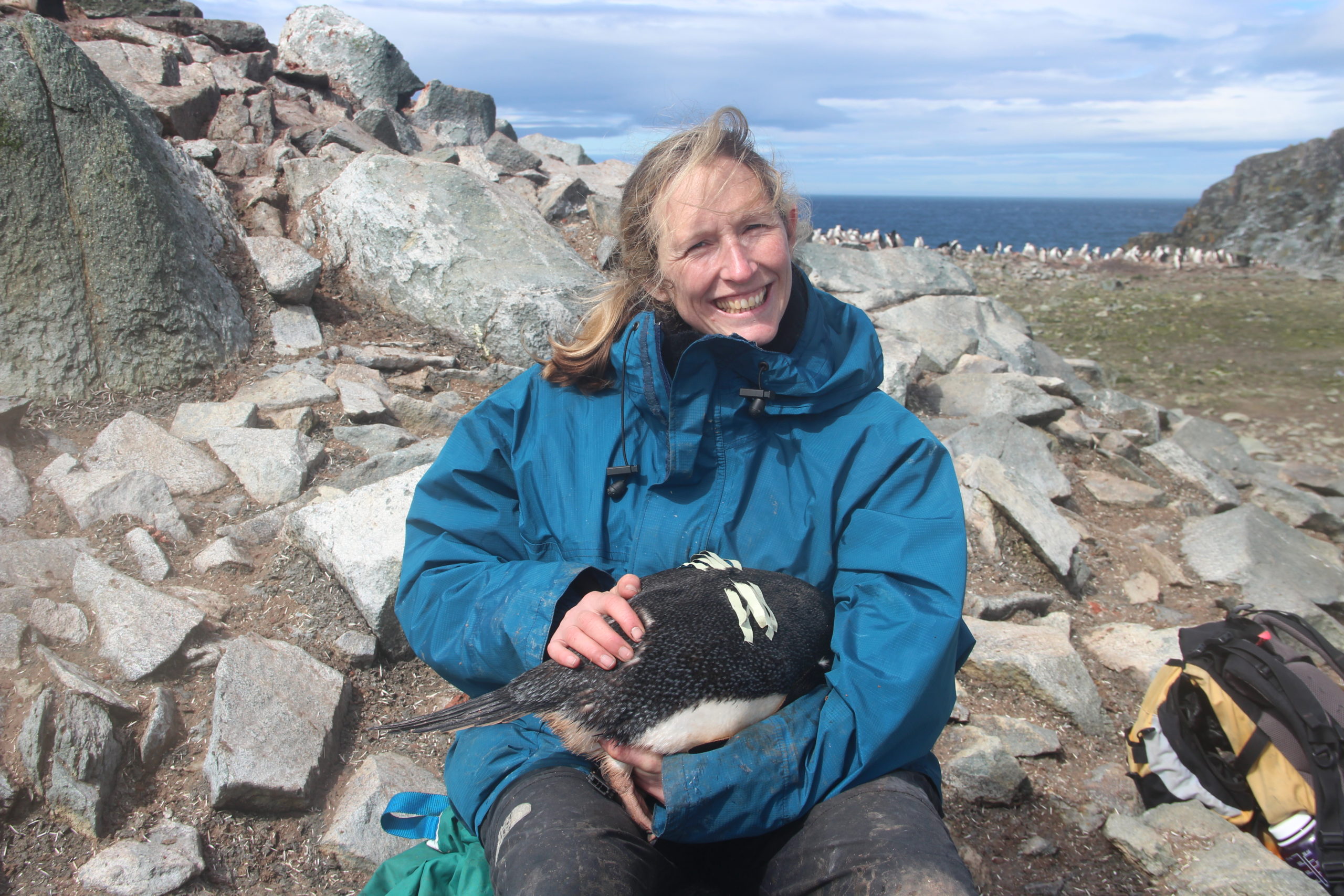Our world-leading marine research underpins a wide range of undergraduate and postgraduate programmes: Research-led teaching | Exeter Marine | University of Exeter. In this #MScGraduateInFocus series we are looking back on some of our MSc graduates who have excelled in conservation around the world since studying with us.
Today we meet Victoria Warwick-Evans, MSc Conservation and Biodiversity graduate (2010) and now working with the British Antarctic Survey as a marine spatial analyst!
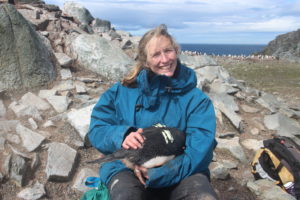
Hi Victoria! First off, why don’t you tell us what you are up to now and how you got there?
I am currently a marine spatial analyst postdoc at the British Antarctic Survey. After graduation I was an intern on the Red Sea Dolphin Project, where we surveyed the distribution of dolphins in the red sea. Subsequently, I worked in sea turtle conservation for a company called SAS Tartarugas in Cape Verde. I then volunteered with a group called Southwest Whale Ecology Study, tracking humpback whales using a theodolite in order to understand their migration along southwest Australia. After this, I used the marine mammal observer qualification that I gained whilst completing my masters at Exeter, to work as a marine mammal observer for Gardline. During this position I gained my seabirds at sea qualification, and subsequently went on to complete a PhD in seabird ecology at the University of Liverpool. Finally I accepted a post-doc at the British Antarctic Survey and have been here for 3 years.
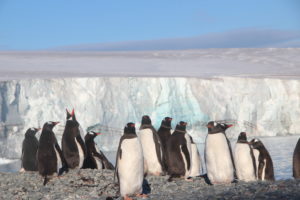
What did you enjoy most about studying your MSc with us at the University of Exeter Cornwall Campus?
The highlight would have to be the field course to Kenya, but I also enjoyed the marine mammal observer course that qualified me to work as a marine mammal observer, and trained me in the identification of marine mammals. The course was carried out on the ferry to Bilbao, so we had a great opportunity to learn from experience.
I was also particularly impressed with the R course, and how well statistics was made accessible to ecologists. I found the modules on specific skills (such as wildlife photography, website design) really important too.
I loved living in Cornwall, there is such a variety of both marine and terrestrial environments to explore both during university courses, and during my own time. The staff in the department were very helpful and supportive, and easy to approach and chat to both academically, and socially.
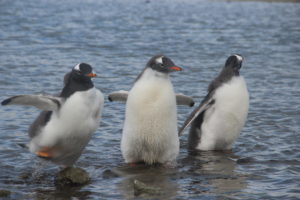
Finally, why did you choose your career path and do you have any advice for those looking to pursue something similar?
I chose to study ecology and conservation as I am inspired by the natural world, and think that conservation is vital for its protection. I stayed in academia because I enjoy the research aspect. I particularly like developing an idea, carrying out fieldwork and analysis, and the satisfaction when the work is published. I think that the statistics course, and public speaking events during the MSc were of significant importance to my career and for job applications.
It is important to get experience, so volunteer wherever you can. Decide which aspect of the work you enjoy the most and try to get experience in that area.
Thanks Victoria!
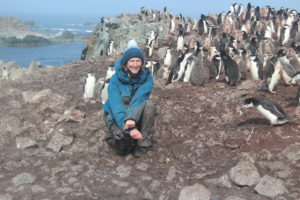
If you want to find out more about any of our suite of #ExeterMarine Masters and Undergraduate courses use the links below!
- NEW: MSc in Marine Vertebrate Ecology and Conservation
- MSc in Conservation and Biodiversity
- MSc in Conservation Science and Policy
- MSc in Evolutionary and Behavioural Ecology
- MSc in Sustainable Development
- MSc in Environment and Human Health
- MSc in Renewable Energy Engineering
- BSc Marine Biology
- BSc Zoology
- BSc Environmental Science
- BSc Conservation Biology and Ecology
- BSc Evolutionary Biology
- BSc Animal Behaviour
- BEng Renewable Energy Engineering

